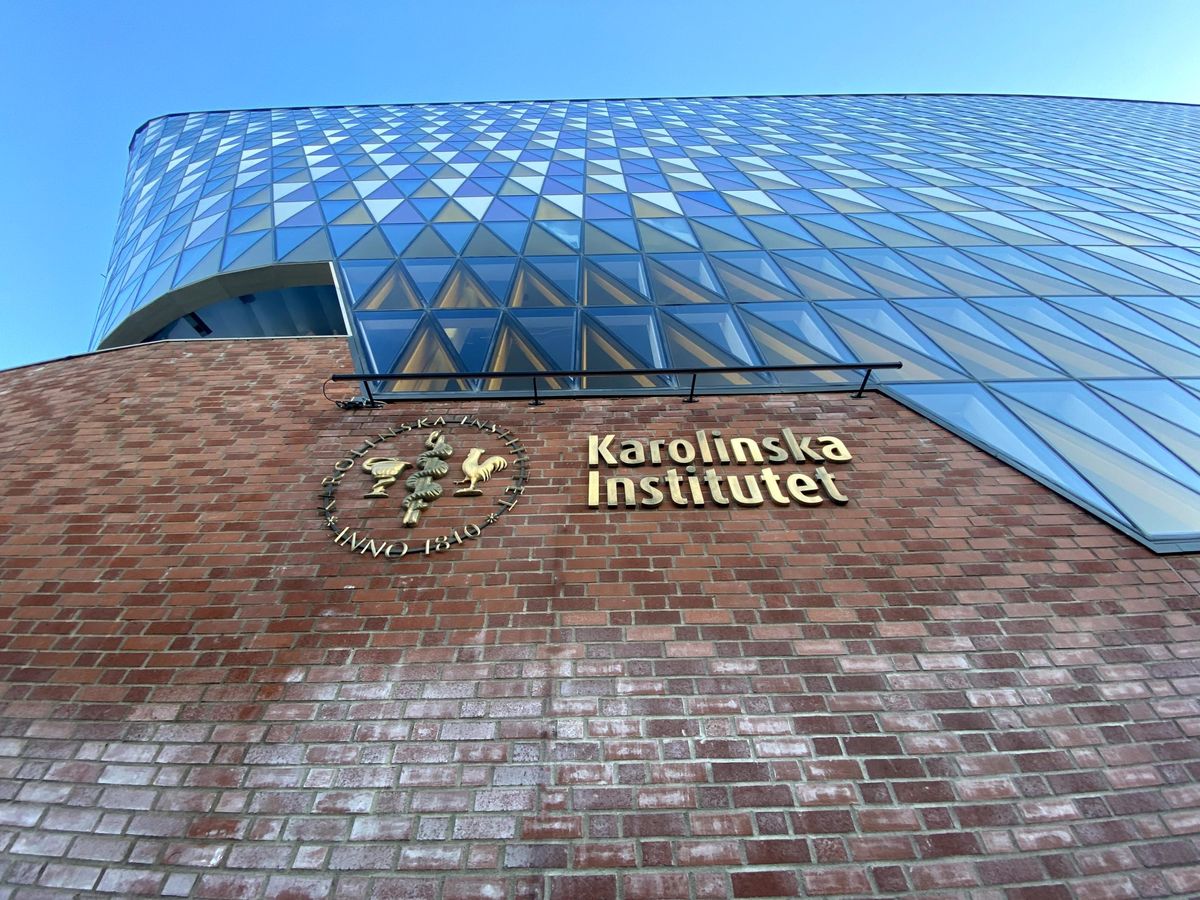Karolinska Institutet: All your FAQs Answered
Discover admissions, programs, campus life, and more at the Karolinska Institutet. Get answers to all your FAQs and embark on your academic journey with confidence!

Nestled in the heart of Sweden, KI stands as a beacon of excellence in medical research and education, attracting students from all corners of the globe. Embarking on an educational journey in a new country comes with its set of questions and uncertainties. From the nuances of application processes to the anticipation of life in Stockholm, the path to studying abroad is filled with queries seeking clarity.
Whether you're pondering the diverse array of programs offered in English, curious about the financial aspects like scholarships and tuition fees, or navigating the practicalities of living in one of the world’s most innovative cities, this blog is your compass. Designed to answer the most frequently asked questions by international students, we aim to pave your way with insights into applying to KI, understanding your accommodation and language requirements, and offering a glimpse into the vibrant student life that awaits in Stockholm.
Looking for housing for students in Stockholm? Check out our listings for shared accommodation on Hemavi!
What programs are offered in English at Karolinska Institutet?
Karolinska Institutet provides one global bachelor's program in English: Biomedicine. This program is closely connected with the cutting-edge biomedical research conducted at Karolinska Institutet, preparing students for advanced studies or careers in biomedicine and related fields.
Karolinska Institutet offers several master's programs in English, designed to equip students with specialized knowledge and skills in various domains of health sciences. Notably, two new master's programs were recently introduced:
- Master's Program in Translational Physiology and Pharmacology: This program integrates physiology and pharmacology, offering deep insights into the functioning of the human body in health and disease. It is aimed at students with backgrounds in biomedicine, biotechnology, chemistry, cell and molecular biology, as well as healthcare and medicine.
- Master's Program in Nutrition Science: Previously a one-year program, it has been expanded to a two-year curriculum providing a comprehensive and in-depth understanding of nutrition. It covers scientific bases, research methodologies, nutritional treatment, and clinical aspects of nutrition science. The program is tailored for students with a medical/natural science background interested in nutrition, diet, and physical activity.
Karolinska Institutet's master's programs are all taught in English and cover a wide range of fields within health and life sciences. These programs are designed not just to provide academic knowledge but also to prepare graduates for successful careers in their chosen fields.
For more detailed information on specific programs, eligibility criteria, application processes, and deadlines, check Karolinska Institutet's pages for Bachelor's Programs and Master's Programs.
How can I apply to Karolinska Institutet?
Applying to Karolinska Institutet (KI) as an international student involves a systematic process, whether you're eyeing a bachelor's or a master's programme. The application for both levels of study is centralized through the Swedish national application portal, University Admissions in Sweden.
Bachelor's Programs Applications
Karolinska Institutet offers a global bachelor's programme in English - the Bachelor's Programme in Biomedicine. The application steps include checking admission rounds, fulfilling entry requirements, and applying through the national application portal. There are specific deadlines for submission of applications and supporting documents, depending on whether you apply in the first or second admission round. Generally, the application window opens around mid-October and closes in mid-January for studies starting in the autumn of the following year.
Master's Programs Applications
The process for applying to master's programmes includes choosing your programme, checking both general and specific entry requirements, proving English language proficiency, applying via universityadmissions.se, filling out a CV form, and following up on your application. Master’s applications also have set periods for submission and specific documentation requirements.
For the most accurate and up-to-date information, consult the specific programme pages on KI’s website and follow the detailed guides on the University Admissions website.
Are there scholarships available at Karolinska Institutet for international students?
Karolinska Institutet Global Master's Scholarships
The Karolinska Institutet Global Master's Scholarship is offered to a select number of students who demonstrate academic excellence. About 10 scholarships are awarded annually across all Global Master's Programmes. The scholarship covers tuition fees, either fully or partially, but does not extend to living expenses or travel costs. To be eligible, students must be from outside the EU/EEA, have applied to one of the Global Master's Programmes, and meet the entry and documentation requirements. The application period typically opens in early February.
The Karolinska Institutet Foundation Scholarships
The KI Foundation Scholarships are available based on either academic qualifications or financial needs. All registered students at basic and advanced levels are eligible to apply, but priority is given to those with financial needs who do not receive full student aid. The scholarships vary in amount and are awarded as a one-time payment. Applications for these scholarships are submitted electronically, and the deadline is usually in early October.
Swedish Institute's Scholarships
Additionally, the Swedish Institute offers scholarships covering both tuition fees and living expenses for students from countries outside the EU/EEA. These scholarships are highly competitive and are intended for full-time master's level studies in Sweden. The application period is in February, and it's crucial that applicants have already submitted their application for a master's programme in Sweden before applying for the SI scholarship.
For more information on eligibility, application processes, and deadlines, you should refer directly to the official Karolinska Institutet scholarships page and the Swedish Institute's scholarships page.
What are the tuition fees for international students?
At Karolinska Institutet, international students from outside the EU/EEA and Switzerland are generally required to pay tuition fees. The exact tuition fee for each programme is designed to cover the full cost of study and varies from one programme to another. You can find the specific tuition fee for your programme of interest in its description on the Karolinska Institutet website. Additionally, an application fee of SEK 900 (approximately EUR 80) is required when you apply through the University Admissions in Sweden portal.
For more detailed information on tuition fees, please visit Karolinska Institutet's tuition fees page.
What is the cost of living in Stockholm?
For international students, the cost of living in Sweden, especially in cities like Stockholm, can vary significantly based on lifestyle and accommodation choices. On average, students should prepare for expenses ranging between 700-1200 EUR per month. This estimate covers accommodation, food, transportation, and other personal expenses. It's important to note that the cost may be on the higher end in major cities like Stockholm and Gothenburg.
What type of accommodation is available through Karolinska Institutet?
Karolinska Institutet offers accommodation to international bachelor's and master's students through KI Housing, providing furnished apartments and rooms in various areas of Stockholm. Non-EU citizens who are required to pay tuition fees are guaranteed accommodation during their first year if they apply by the deadline. EU/EEA or Swiss citizens need to find housing independently, with suggestions to explore beyond the city center for more options due to the competitive housing market in Stockholm. Students are encouraged to register for the SSSB housing queue by joining the student union, which provides affordable student accommodations.
One resource that can help you find housing in Stockholm is Hemavi – make sure you create a thorough user profile to get matched with compatible roommates!
Can I work while studying at Karolinska Institutet?
Yes, international students are allowed to work while studying at Karolinska Institutet. There are no legal restrictions on the number of hours international students can work during their studies in Sweden. However, balancing work commitments with your academic responsibilities is crucial to ensure both work and study are manageable.
What are the visa requirements for non-EU/EEA students who want to study in Sweden?
Non-EU/EEA students who wish to study in Sweden for more than three months need to apply for a residence permit for higher education. This permit must be issued before traveling to Sweden. Requirements include having a valid passport, being admitted to full-time studies that require presence in Sweden, having paid any tuition fees due, being able to support oneself financially during the study period, and having or applying for comprehensive health insurance if the studies last less than a year.




Comments ()